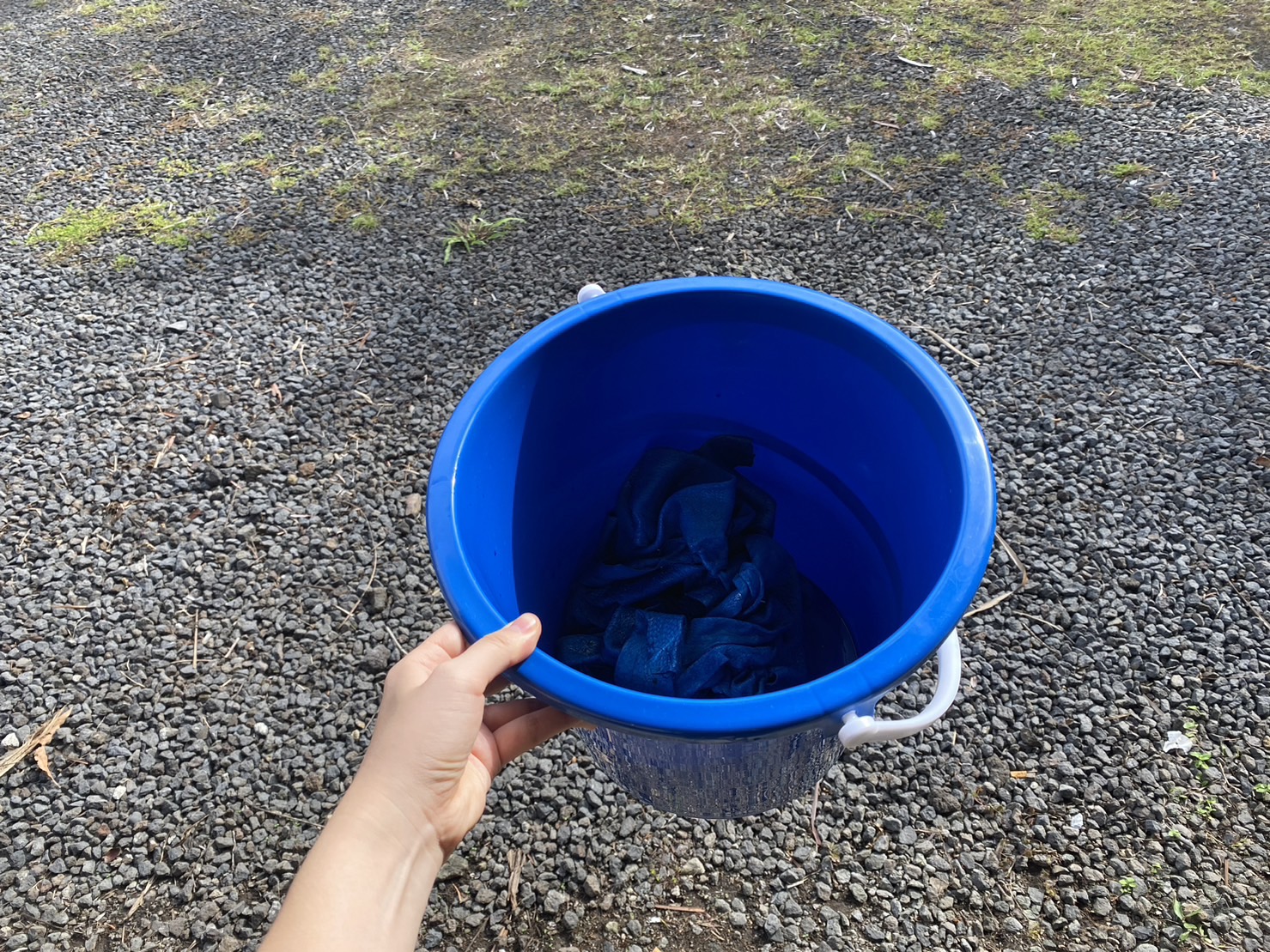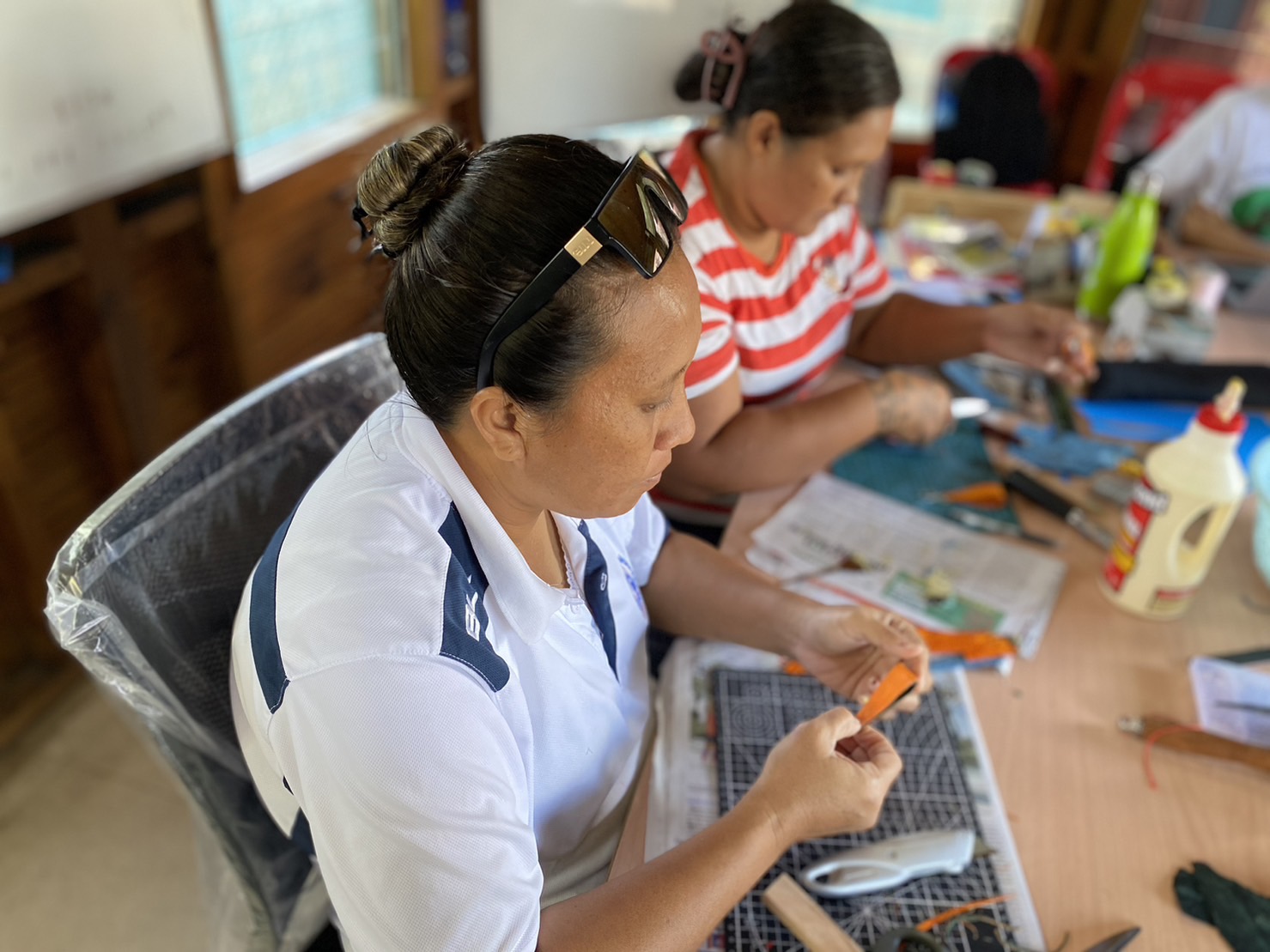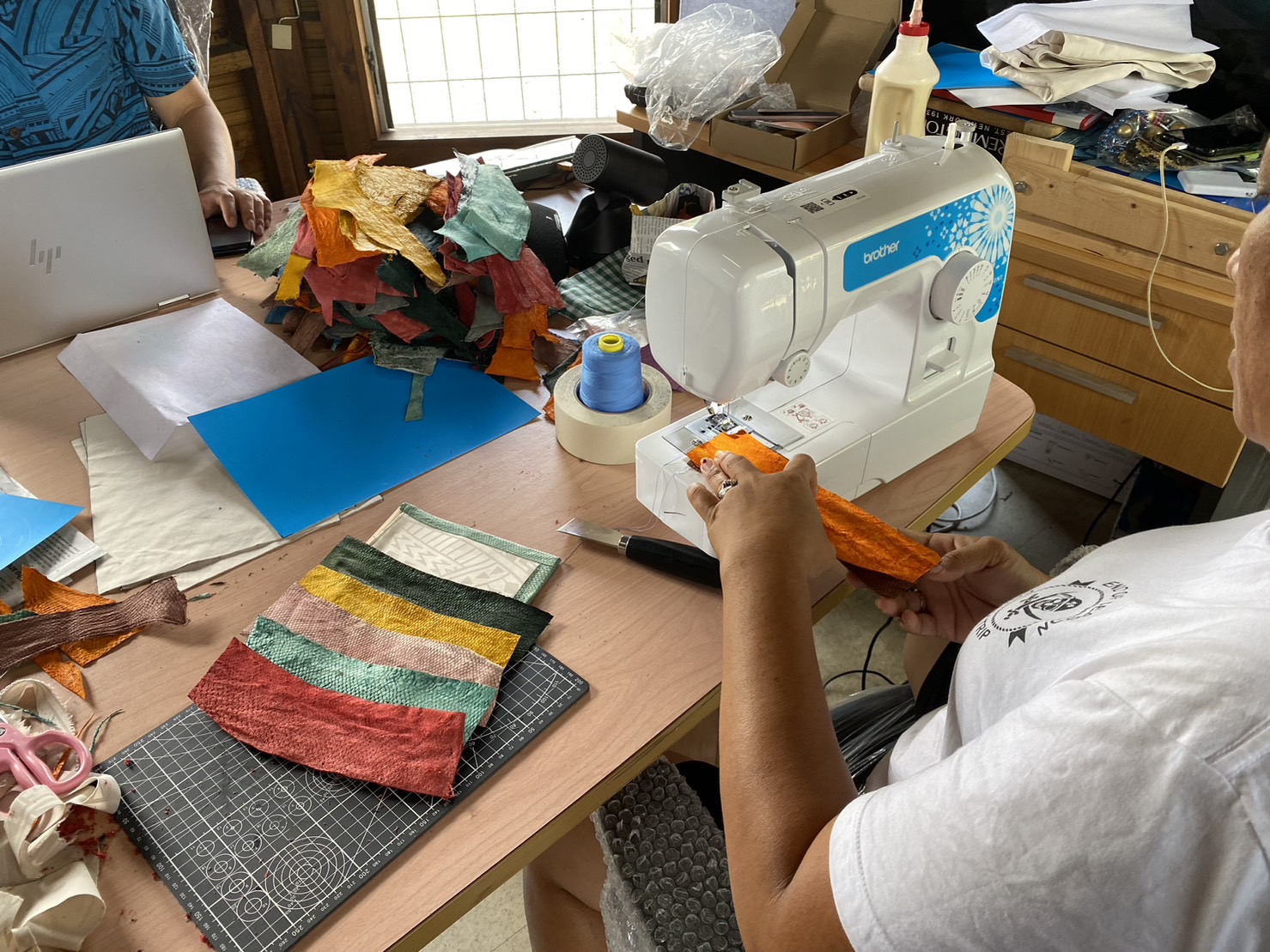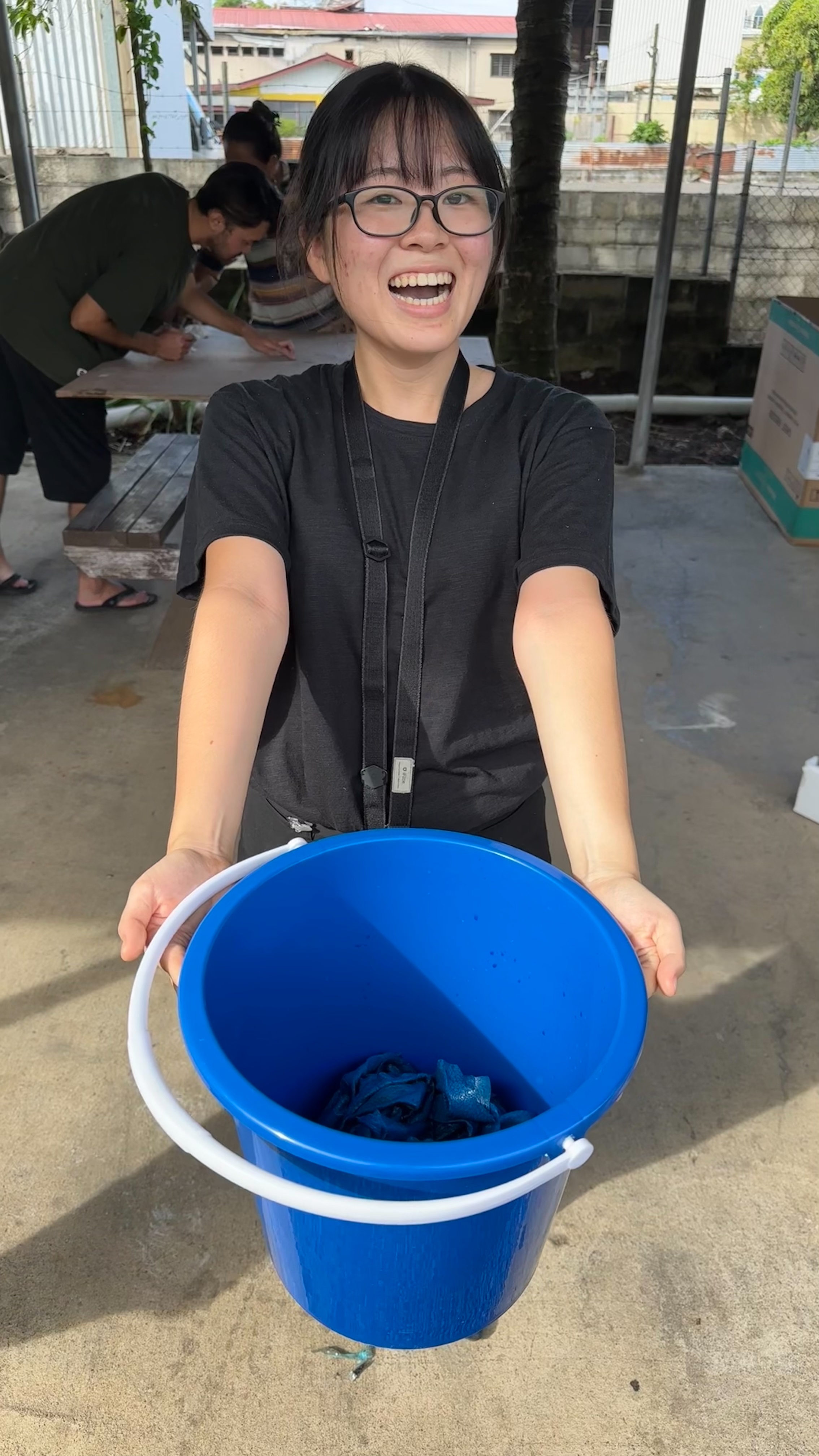100% Fish Use Project: Lessons in Sustainable Project Design
January 30, 2024

AccLab Team, Misa Ito, and Japanese experts from Ocean Leather
Almost a month into my assignment at the United Nations Development Programme’s Multi-Country Office in Samoa, I helped facilitate a workshop organized by the UNDP Accelerator Lab that focused on the innovative utilization of fish waste. While I was familiar with the idea of using fish bones for medicinal purposes and converting fish waste into organic fertilizers, I was astonished to discover that discarded fish skin could be transformed into leather.
Immersed in what we affectionately called the "fish hub" for nearly two weeks, we conducted a workshop to transfer the skills of creating high-end products using fish leather from two Japanese experts from Tototo (Think Sea Corp) and Ocean Leather to two young Samoan women. Building on shared knowledge from a previous session in June, the workshop covered dyeing fish leather and crafting items like pouches, earrings, key chains and card cases using sewing machines and specialized tools for leatherwork.

Photo 1: Dyeing fish leather

Photo 2: Crafting pouches using fish leather

Photo 3: Crafting earrings and key chains using fish leather
I joined the UNDP Samoa MCO in late September 2023 as an international United Nations university volunteer, drawn by Samoa's natural beauty, and intrigued by the unique development challenges it faces as a Small Island Developing State (SIDS), such as small population, geographical isolation, and vulnerability to climate change. Assigned to the Environment and Climate Change Unit as a program support officer, I was tasked with creating an original concept note for a potential development project. Hence, the opportunity to witness project implementation at the grassroots level through this workshop was truly enriching, since I was able to bridge the gap between project design and on-the-ground execution.
The realization that struck me the hardest during the workshop was that a meticulously planned project on paper risks failure without a strong foundation rooted in local culture and the environment. The challenges encountered during our mission, from grappling with tools that suit Samoa's humid climate, to considerations of market compatibility, underscored the critical role of aligning projects with the cultural and environmental context. This eye-opening experience emphasized that the success of any project design truly relies on embracing the local culture through meticulous research and active engagement.
Reflecting on my time in the fish hub, the workshop's impact on my understanding of project dynamics is profound. It brought to light the intricate dance between theory and practice, particularly in a cultural landscape unfamiliar to me. Thorough research, a receptive attitude, and the incorporation of local insights have become the very essence of responsible project design. This workshop has not only equipped me with new skills; it has shifted my perspective on how I can better serve my role by embracing Samoa's unique background.
As I conclude my insightful journey within the "100% Fish Use Mission”, the workshop has proven to be more than a mere exploration of innovative ways to utilize fish waste. It has taught me the essence of responsible project design in the unique context of Samoa and provided me with insight into how I can better serve my role. Moving forward, this understanding will guide my approach to project design, ensuring that it resonates with Samoa's local culture and the environment, contributing meaningfully to its sustainable development.

Misa Ito
With the AccLab team and Japanese experts from Ocean Leather and Tototo.

 Locations
Locations